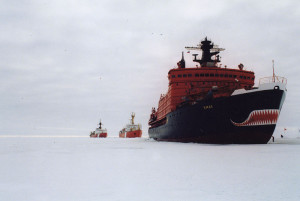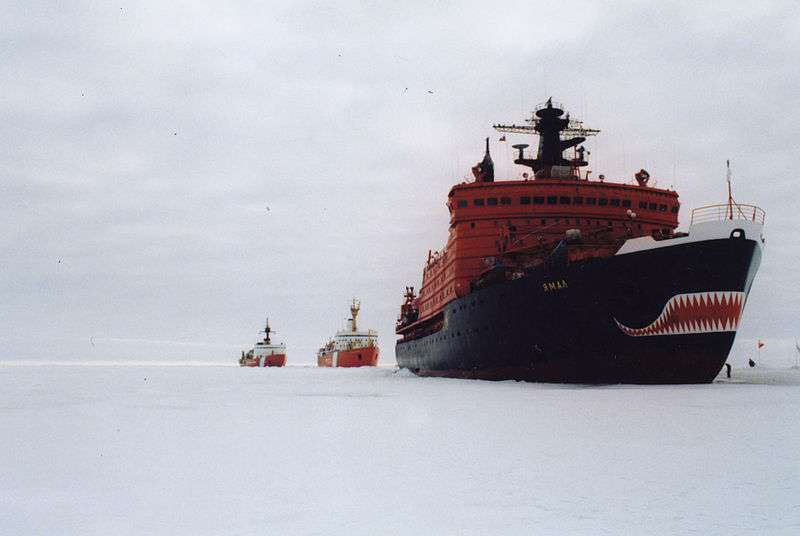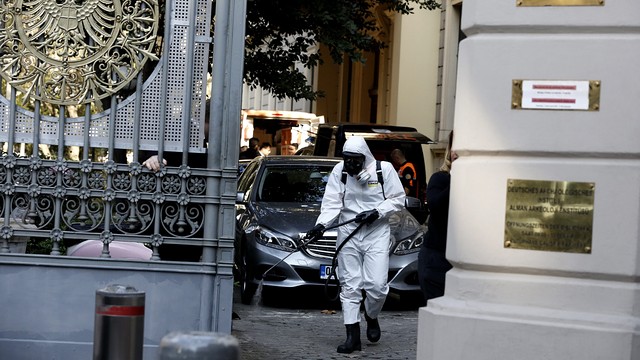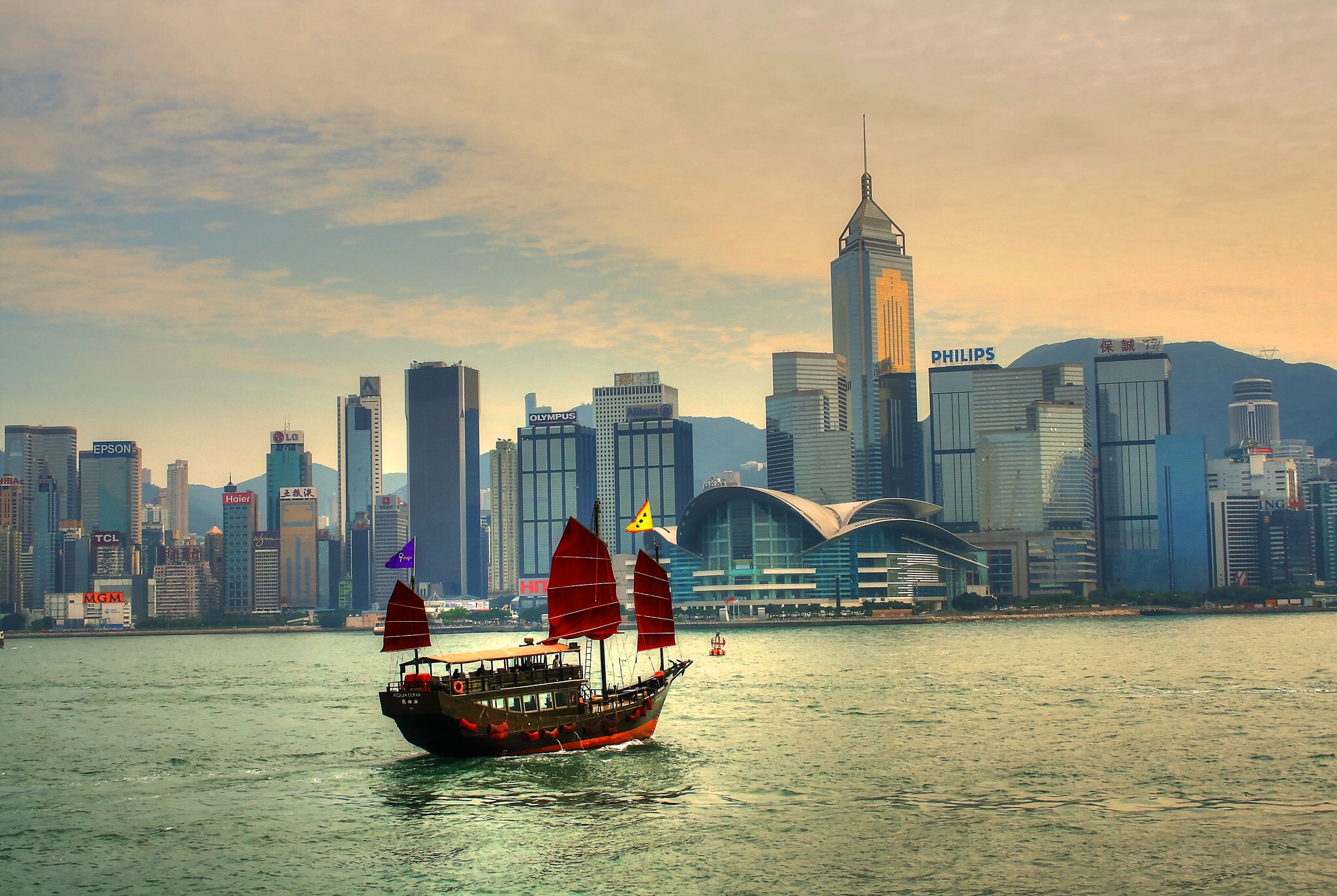In the past week Russian fighter jets have been intercepted by Canadian and American jets on two occasions, over concerns that they might violate American orCanadian airspace. These events bring to attention the tensions between Canada and Russia as both nations seek to assert their sovereignty in the Arctic through military means and international law. In this race Canada is falling behind.

The Arctic is now a cause for tensions between Canada, Denmark, the United States and Russia, with several territorial disputes existing and the status of the Northwest Passage and Northern Sea Routes contested. One issue of contention is the large reserves of fossil fuels that exist under the Arctic seabed. The US Geological Survey estimates that within this region 30 percent of all undiscovered natural gas is hidden, as well as 13 percent of all undiscovered oil. When it becomes economically viable to access these resources, countries that have managed to establish control over this region will most likely benefit economically.
Russia, historically the nation with the strongest Arctic capabilities, has been revitalizing its Northern Fleet. The Russians added two next generation Borey nuclear submarines to their Arctic fleet in 2013 and are slated to add six more by 2020. Russian President Vladmir Putin has stated that Russia sees establishing its military presence in the Arctic as among its top priorities.
In contrast, Canada’s navy is barely capable of maintaining a significant presence in the Arctic region. There have been improvements in recent years, with Canada now having the capability to detect ships moving through the Arctic region 24 hours a day, in all weather, through the use of a satellite. However, Canadian detection capabilities still lack the ability to detect submarines. In addition, Canada’s own fleet is lacking, with only three of its four Victoria class diesel submarines currently in operation. As these ships are diesel, they cannot stay submerged long enough to move under ice sheets, limiting the areas of the Arctic they can access. The Canadian Coast Guard has a total of 18 icebreakers, with two heavy and four medium icebreakers, but these are for guiding ships through the Arctic region. The Royal Canadian Navy has no ships in operation in the Arctic, so the Coast Guard amounts to Canada’s naval presence in the region.
Canada does have some military presence in the Arctic, most notably Operation NANOOK, which takes place annually in the Canadian territories and involves all branches of the Canadian Armed Forces. This year 800 participants were involved and coordination occurred with the United States and Denmark as well as the usual deployment of the 1st Canadian Ranger Patrol Group and the 440 “Vampire” Transport Squadron.
In addition to this, the Federal government has provided funding to build a new fleet of navy patrol ships for the Arctic region. However, this plan has been criticized because the government intends to build hybrid ships for use in both Arctic waters and the east and west coasts. The Canadian Centre for Policy Alternatives argues that this will lead to the creation of ships that are too slow and limited in range to patrol the Arctic, as well as incapable of operating in areas with Arctic sea ice. However, an alternative view is that when these ships are completed their hybrid nature will provide an advantage by allowing them to operate year round.
Where then do we find ourselves? Canada currently lacks the abilities to maintain a significant presence in the Arctic. The size of its forces in the Arctic, makes unlikely that they will deter an attack from any other Arctic power. However, it is unlikely that any Arctic nation would take combat action in the region as the costs and dangers of such a war would far outweigh any potential benefits. The real concern is over international law, and who controls what parts of the Arctic and thereby access to the natural resources waiting in the seabed once it becomes economically viable
Under the United Nations Convention on the Law of the Sea (UNCLOS) a country is only able to exploit the resources in a 370 kilometre Exclusive Economic Zone away from their coastline. The exception to this rule is where there is a continental shelf extending past the coastline under the ocean, in which case the country is able to also lay claim to the territory above that shelf. In the case of the Arctic, continental shelves extend from North America and Eurasia to the north, so there is a race against time underwayfor all the coastal states in the Arctic except the United States, which is not a signatory to the law, to lay claim to these shelvesThe problem is that to claim this territory the country has to present scientific evidence to the Commission on the Limits of the Continental Shelf (CLCS) to support its claim. Each has 10 years from the time it ratifies UNCLOS to submit its findings to CLCS. While the decision of the CLCS is not enforceable, it does help give legitimacy to a nation’s claim to territory and resolve disputes between states by having a third party intervene.
Three countries are in the process of laying their claims. The countries contest the Lomonosov Ridge, which extends from the New Siberian Islands in Russia to Ellesmere Island in Canada. Canada and Denmark claim that it is an extension of the North American continental shelf while Russia claims that it is an extension of the Eurasian continental shelf. Canada and the US have been working together with two icebreakers to map the North American shelf, while Russia has been mapping the seabed since 2007 and plans to submit its findings next year. Russia has had a head start on Canada in this process because they signed the UNCLOS years before Canada, and so they can present their findings earlier. As tensions between Canada and Russia rise in the Arctic, Canada has found itself slow to establish its sovereignty in the region




